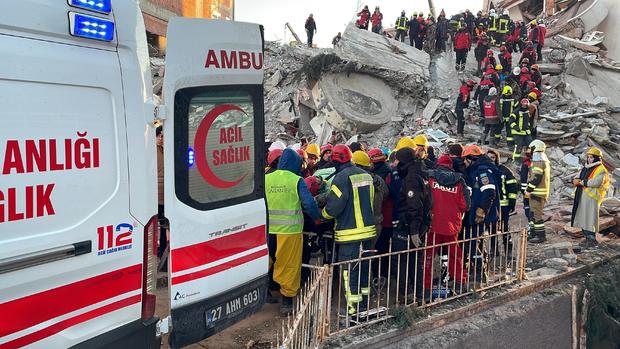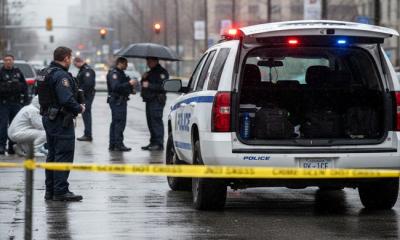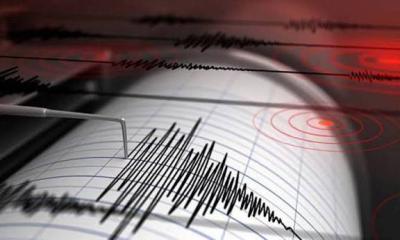Rescuers pulled more survivors from beneath the rubble of collapsed buildings Thursday but hopes were starting to fade of finding many more people alive more than three days after catastrophic earthquakes and a series of aftershocks hit Turkey and Syria, killing more than 19,700 people.
The U.S. Embassy in Ankara, Turkey confirmed Thursday that at least three Americans were among the dead in that nation.
The quake that razed thousands of buildings was one of the deadliest worldwide in more than a decade, with the deaths surpassing even the toll from the 2011 earthquake of Fukushima, Japan, that triggered a tsunami, killing more than 18,400.
Experts said the survival window for those trapped under the rubble or otherwise unable to obtain basic necessities was closing rapidly. At the same time, they said it was too soon to abandon hope.
"The first 72 hours are considered to be critical," said Steven Godby, a natural hazards expert at Nottingham Trent University in England. "The survival ratio on average within 24 hours is 74%, after 72 hours it is 22% and by the fifth day it is 6%."
The death toll keeps climbing
Turkish President Recep Tayyip Erdogan said Thursday 16,170 people were killed in his nation and more than 67,000 injured. On the Syrian side of the border, 3,577 have been reported dead and more than 6,300 injured, bringing the death toll in the two countries to over 19,700.
Risklayer, which describes itself as a "transparent and independent collaborative catastrophe risk firm in Germany and Australia," tweeted Wednesday that it projects the number of dead could wind up topping 45,000.
And the rating agency Fitch said Thursday economic losses from the quakes could be more than $4 billion, Agence France-Presse reported.
Teams from more than two dozen countries have joined the local emergency personnel in the effort. But the scale of destruction from the quake and its powerful aftershocks was so immense and spread over such a wide area that many people were still awaiting help.
The first U.N. aid trucks to enter rebel-held northwest Syria from Turkey since the quake arrived Thursday morning. Smaller aid organizations have sent in shipments, but the U.N. is only authorized to deliver aid through one border crossing and road damage has prevented that thus far.
Tens of thousands are thought to have lost their homes. In Antakya, former residents of a collapsed building huddled around an outdoor fire overnight into Thursday, wrapping blankets tightly around themselves to try to stay warm.
Ahmet Tokgoz, a survivor, called for the government to evacuate people from the devastated region. While many of the tens of thousands who have lost their homes have found shelter in tents, stadiums and other temporary accommodation, others have spent the nights outdoors since Monday`s quakes.
"Especially in this cold, it is not possible to live here," he said. "People are warming up around campfires, but campfires can only warm you up so much. ... If people haven`t died from being stuck under the rubble, they`ll die from the cold."
Serap Arslan said many people remained under the rubble of the nearby building, including her mother and brother. She said machinery only started to move some of the heavy concrete on Wednesday.
"We tried to clear it by our own means, but unfortunately we are very inadequately" prepared for the job, the 45-year-old said.
Selen Ekimen wiped tears from her face with gloved hands as she explained that both her parents and brother were still buried.
There`s been "no sound from them for days," she said. "None."
Erdogan was scheduled to travel Thursday to the quake-hit provinces of Gaziantep, Osmaniye and Kilis amid ongoing criticism that the government`s response has been too slow.
According to the disaster management agency, more than 110,000 rescue personnel were now taking part in the effort and more than 5,500 vehicles, including tractors, cranes, bulldozers and excavators had been shipped.
The task is monumental, however, with thousands of buildings toppled by the earthquake.
Erdogan, who faces a tough battle for reelection in May, acknowledged problems with the emergency response to Monday`s 7.8-magnitude quake, but said the winter weather had been a factor. The earthquake also destroyed the runway at Hatay`s airport, further disrupting the response.
"It is not possible to be prepared for such a disaster," Erdogan said. "We will not leave any of our citizens uncared for." He also hit back at critics, saying "dishonorable people" were spreading "lies and slander" about the government`s actions.
Turkish authorities also said they were targeting disinformation, and the internet monitoring group NetBlocks said Wednesday that access to Twitter in Turkey had been restricted, despite it being used by survivors to alert rescuers. However, Twitter CEO Elon Musk tweeted Wednesday night that "Twitter has been informed by the Turkish government that access will be reenabled shortly."
And NetBlocks tweeted Thursday that "access to Twitter is being restored in #Turkey following hours of filtering. The restoration comes after authorities held a meeting with Twitter to "remind Twitter of its obligations" on content takedowns and disinformation."




-20260216055149.webp)


-20260215061522.webp)





-20260217073221.webp)




-20260216115008.webp)



















